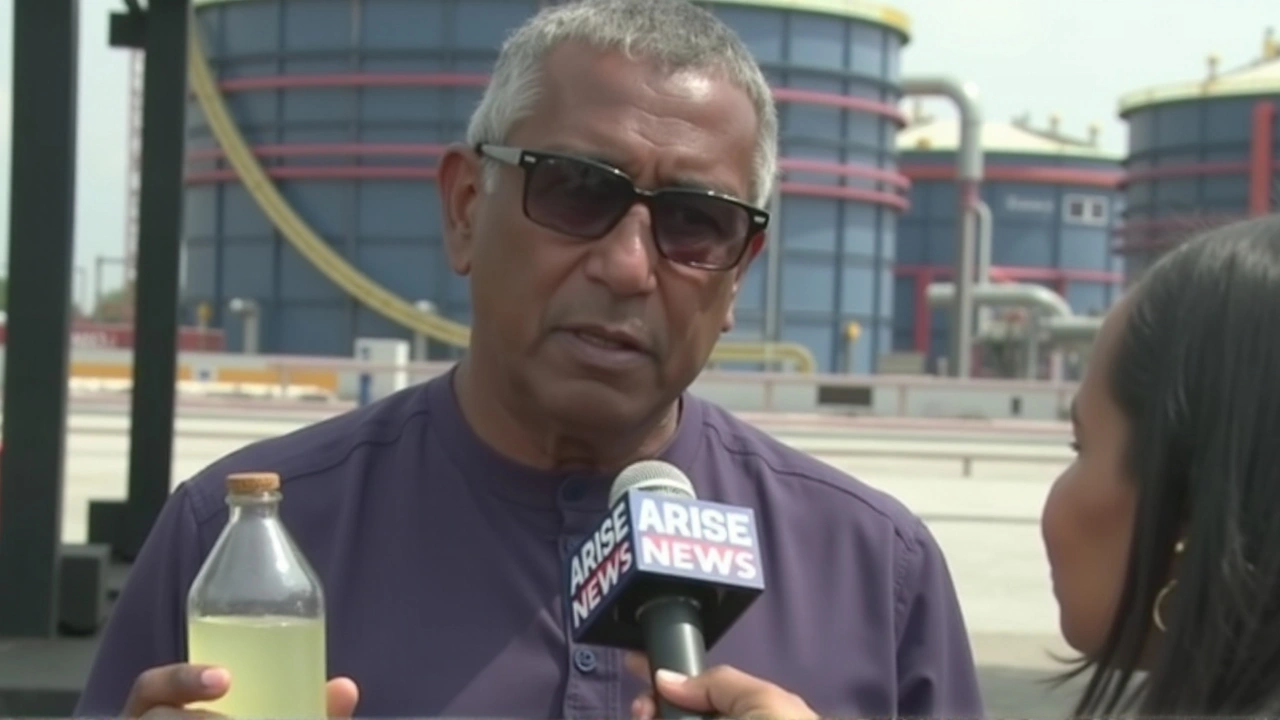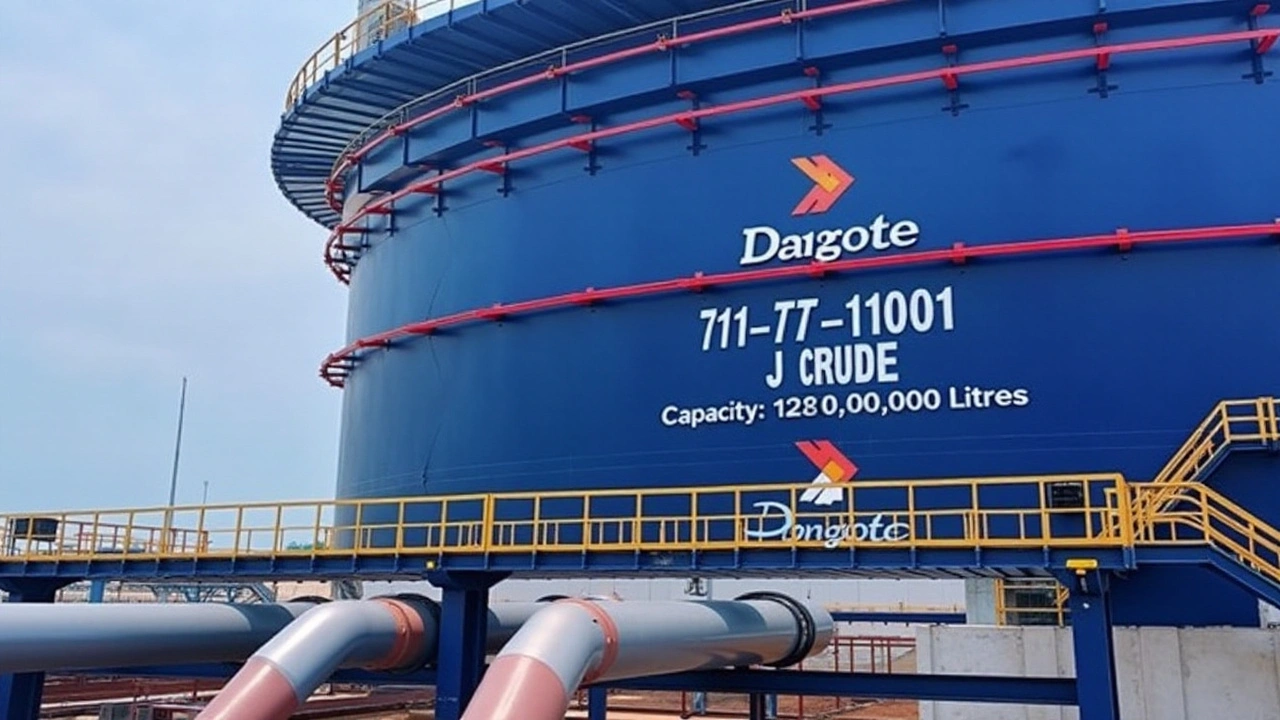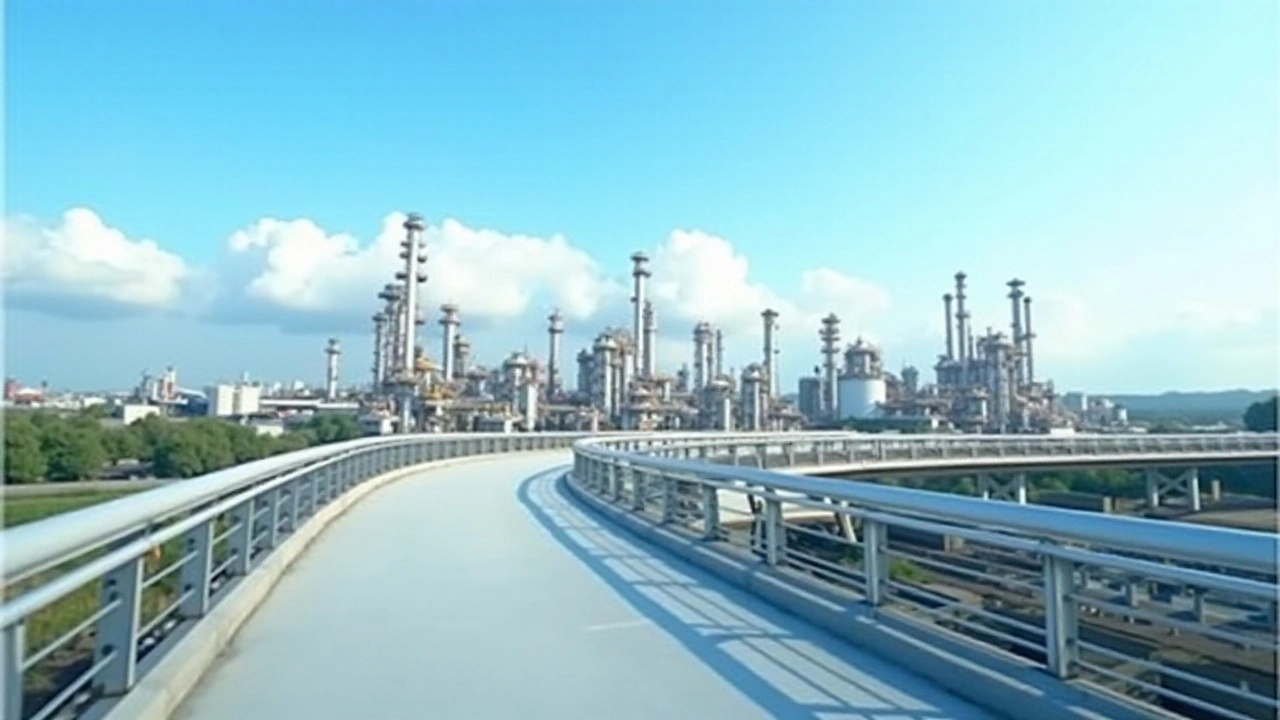Dangote Refinery Revolutionizes Nigeria's Fuel Market with PMS Sales
4 Sep, 2024Dangote Refinery Initiates Premium Motor Spirit (PMS) Sales
In a transformative move for Nigeria's petroleum sector, the Dangote Refinery has successfully started the sale of its first batch of Premium Motor Spirit (PMS), also commonly referred to as petrol. This milestone is poised to significantly alter the energy landscape of Nigeria, a nation historically reliant on imported fuel to meet its domestic needs. The refinery boasts an impressive production capacity of 650,000 barrels per day (BPD), promising a substantial boost to the nation's energy self-reliance.
Reducing Nigeria's Dependence on Imported Fuel
Nigeria, despite being one of the largest oil producers in Africa, has long struggled with refining enough fuel for its domestic consumption. This incongruity stems from the country's underdeveloped and outdated refinery infrastructure. Often, the nation has had to rely heavily on imported petroleum products, triggering price volatility and supply inconsistencies. The advent of the Dangote Refinery's operations is a bold step towards redefining this narrative, aiming to significantly slash the necessity of imported fuel, thus stabilizing the market.
Massive Production Capacity
The Dangote Refinery’s capacity to process 650,000 barrels per day is not just a number; it signifies a potential turning point for the Nigerian economy. By effectively meeting domestic demands, the refinery is positioned to become one of the region’s most pivotal assets, not only stabilizing the fuel market but also ensuring a steady supply which, in turn, should lower fuel prices over time. These advancements are critical as they promise to usher in an era of economic stability and growth. The refinery's large-scale production is expected to efficiently address the frequent shortages and supply glitches that have historically plagued the Nigerian fuel market.

Technological Advancements and Substantial Investment
The operations at the Dangote Refinery are not just a product of advantageous location and resources but also a result of substantial investments and cutting-edge technological advancements. Aliko Dangote, the businessman behind this ambitious project, has heavily invested in world-class technology to ensure that the refinery operates at the highest efficiency levels. Modern machinery and advanced refining techniques are employed to maximize output and minimize waste, setting a new standard in the regional and global petroleum industry. The integration of such state-of-the-art technology is expected to enhance operational efficiencies and output quality, positioning the refinery as a leader in the industry.
Economic Impact: Lower Fuel Prices and Enhanced Supply Chain Efficiency
The commencement of PMS sales from the Dangote Refinery is projected to have far-reaching economic effects. One immediate anticipated benefit is the reduction in fuel prices. Historically, the cost of fuel in Nigeria has been influenced by the erratic fluctuations in global oil prices and the country’s dependence on imports. Now, with local production ramping up, there is an inherent potential to control and lower fuel prices, making them more stable and predictable. This shift not only makes fuel more affordable for everyday consumers but also reduces operational costs for industries reliant on fuel.
Enhancing supply chain efficiency is another anticipated benefit. The refinery’s operations are expected to streamline the distribution of petroleum products, ensuring a more reliable and consistent supply throughout the country. This improved consistency is crucial for various sectors within the economy, reducing the bottlenecks that have previously hindered growth and operations across different industries.

A Milestone for Nigeria's Energy Sector
The launch of PMS sales is more than just a business achievement; it marks a critical milestone in Nigeria’s journey towards energy self-sufficiency. By reducing dependence on external fuel sources, the country can now direct resources previously spent on imports towards other development goals. This newfound self-sufficiency is expected to strengthen the national economy, as funds can be reinvested in infrastructure, healthcare, education, and other essential sectors. Additionally, the Dangote Refinery’s success is seen as an empowering precedent for other potential investments in the country’s refining capacity.
Moreover, the establishment of this refinery places Nigeria in a favorable position within the global petroleum industry. With the capacity to not only fulfill domestic needs but also cater to regional demands, the Dangote Refinery sets the stage for Nigeria to become a significant player in the global fuel market. This ability to export refined products adds an extra stream of revenue for the country, bolstering economic stability and growth.
Conclusion
In conclusion, the initiation of PMS sales by the Dangote Refinery signals a transformative moment for Nigeria’s petroleum industry. With its massive production capacity, advanced technology, and substantial investment, the refinery is poised to significantly reduce the country’s reliance on imported fuel, stabilize the fuel market, and enhance supply chain efficiency. The economic ripple effects of this development are likely to be substantial, promising lower fuel prices, economic growth, and greater national self-sufficiency. As the Dangote Refinery continues to ramp up operations, its impact on both the regional and global petroleum industry will undoubtedly be profound.

 by
by